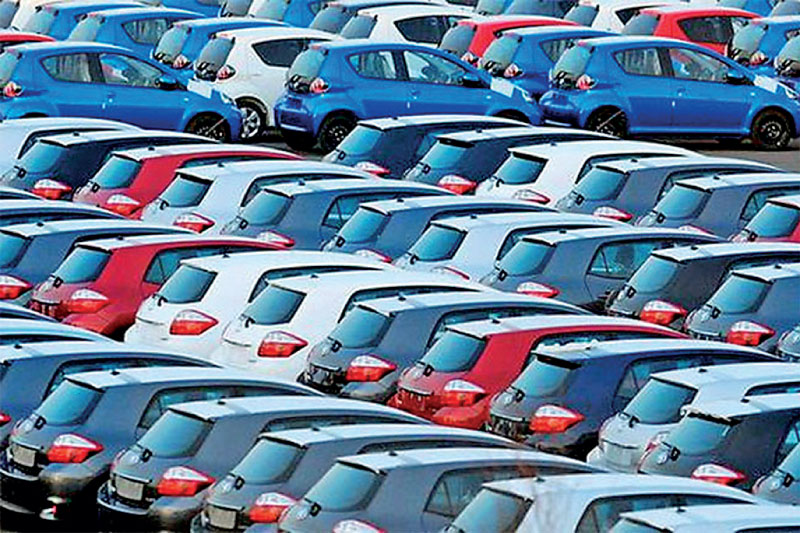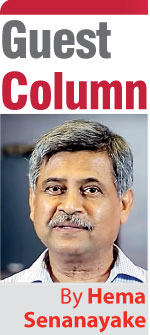Sunday Feb 15, 2026
Sunday Feb 15, 2026
Thursday, 23 January 2025 03:23 - - {{hitsCtrl.values.hits}}

The Central Bank promised to provide $ 1.5 billion for vehicle imports. This action surely will result in depleting GOR levels
 Foreign reserves are a critical component of a nation’s economic stability. These reserves, which include foreign currencies, gold, and other financial assets, are held by a country’s central bank and are used to back liabilities, influence monetary policy, exchange rate policy and ensure financial stability. In Sri Lanka, the management and status of foreign reserves have been significant topics of discussion, particularly in light of recent economic challenges. This discussion surfaced again with the promise of the Central Bank Governor to provide $ 1.5 billion for vehicle imports in the year 2025. We have our doubts.
Foreign reserves are a critical component of a nation’s economic stability. These reserves, which include foreign currencies, gold, and other financial assets, are held by a country’s central bank and are used to back liabilities, influence monetary policy, exchange rate policy and ensure financial stability. In Sri Lanka, the management and status of foreign reserves have been significant topics of discussion, particularly in light of recent economic challenges. This discussion surfaced again with the promise of the Central Bank Governor to provide $ 1.5 billion for vehicle imports in the year 2025. We have our doubts.
Past experiences
In recent history, the role of former Central Bank governors in managing Sri Lanka’s foreign reserves has been a subject of scrutiny and debate. Their policies and decisions have had lasting negative impacts on the country’s economic health, often drawing criticism for perceived shortcomings. Critics argue that insufficient foresight, mismanagement, and a lack of strategic planning have contributed to the depletion of reserves during critical periods, leaving the nation vulnerable to financial shocks both internal and external. The repeated failures to adequately bolster foreign reserves and maintain economic stability have eroded public trust and raised questions about the effectiveness of the Central Bank’s leadership.
You may argue that now the Central Bank is independent and Dr. Nandalal Weerasinghe, the incumbent Governor being announced as the Sri Lankan of the Year 2024, by the pioneering business magazine LMD, provides an intelligent leadership. However, sometimes, even though the central bank is independent, its governor might have a habit of reading the political mind of the President and may tend to make erroneous decisions.
Reading the mind of the President
The new Government is in the process of preparing its first Budget, which is critical to all stakeholders and for the political health of the Government. Among many promises, the Government has promised not to increase taxes, to reduce PAYE tax burden and increase salaries. To keep these promises the Government needs extra revenue source. The Governor of the Central Bank comes up with a solution, perhaps to win the hearts and minds of the political authorities. Director General of Customs advocated and ratified the solution. The proposition is simple. Lift the ban on vehicle imports and collect high tariffs at customs, boosting the Government revenue by billions of rupees.
Hidden facts
The Governor of the Central Bank justified the decision explaining the foreign exchange reserve position. He said that Gross Official Reserves (GOR) amounts to $ 6.2 billion as of 31 December 2024. Some analysts do have the habit of believing the words of the Governor but verify it. According to the IMF report published in March 2023, the Central Bank liabilities, including payments to IMF for the year 2025, amount to $ 207 million. In the IMF report of December 2023 and June 2024, this amount has been adjusted to $ 1,113 or so. How this significant difference appears suddenly in the Central Bank liabilities. Can it be a differed liability? Perhaps. As we know now, the period of settlement of the Chinese swap amounting to $ 1.4 billion has been extended by another three years recently. Similarly, there can be past due amounts to other central banks particularly to Reserve Bank of India (RBI).
As far as I came to know that there is another past due amount of $ 2.5 billion to RBI. If these amounts have been accounted the actual reserves, we should have at the end of last year was $ 2.3 billion (declared reserve of $ 6.2 billion less Chinese swap $ 1.4 billion, less RBI past due amount $ 2.5 billion, equals $ 2.3 billion). This is not a good position of Gross Official Reserves because significant portion of it comes from loans and accumulated past due amounts of loans. Out of this the Central Bank promised to provide $ 1.5 billion for vehicle imports. This action surely will result in depleting GOR levels, if significant tourist arrivals and remittances are not increased in short term. However, if past due amounts are demanded by RBI, then it creates a crisis of national sovereignty. Sri Lanka will have to offer a similar (so called) “investment opportunity” to India that have been offered to China.
New strategy
I have previously argued that the economic system we are managing is a disequilibrium system that creates a component of debt that can never be paid back when the supply and demand equilibrium takes place. Hence there is no intrinsic mechanism to mitigate this contradiction and therefore it requires an extrinsic mechanism to mitigate this contradiction. All developed economies do this via quantitative easing, which is the expansion of the balance sheet of central banks by creating new money subjected to a monetary rule ensuring that new money will not create unexpected inflation (This is totally different from Modern Monetary Theory).
This approach will ensure that the Government does not depend on the tariff money solely to generate new revenue. As a result, the policy of allowing vehicle imports can be streamlined so as to ensure that the optimum number of vehicles (cars) are imported at a reasonable price by extending the vehicles’ used period to five years or so, without jacking up prices even though higher tariffs are collected while minimising the outflow of dollars.
(The writer can be reached at [email protected].)